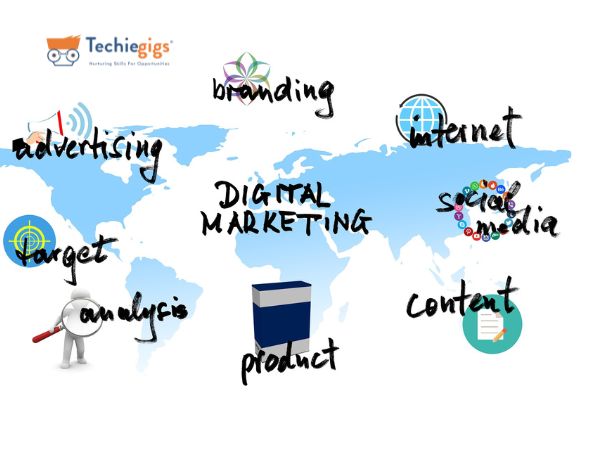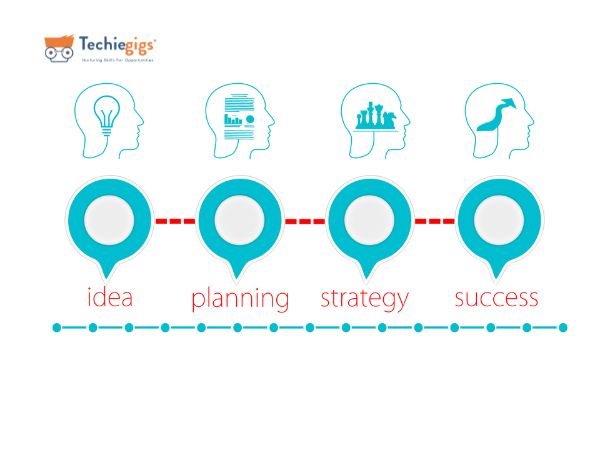In the fast-evolving world of online marketing, understanding digital marketing terminology is crucial for navigating strategies, campaigns, and analytics effectively. Whether you’re a beginner or an experienced marketer, mastering the right terms can empower you to optimize your efforts and achieve better results.
In this blog, we’ll explore essential digital marketing terminology to help you become fluent in the language of online marketing. With a focus on clarity and practical application, this guide will enhance your understanding and confidence in the field.

What is Digital Marketing Terminology?
Before diving into the list of terms, let’s first define digital marketing terminology. It refers to the specialized language and jargon used in the field of online marketing. These terms encompass strategies, tools, metrics, and techniques vital for successful marketing in the digital landscape.
Knowing these terms ensures you’re equipped to communicate effectively with teams, clients, and stakeholders, while also enhancing your ability to plan and execute campaigns efficiently.
Core Digital Marketing Terminology You Must Know
1.Search Engine Optimization (SEO)
SEO is the process of optimizing your website to rank higher in search engine results. It involves keyword research, on-page SEO, off-page SEO, and technical SEO. Understanding SEO is fundamental for boosting organic traffic and online visibility.
2. Pay-Per-Click (PPC)

PPC is a model of internet marketing where advertisers pay a fee each time one of their ads is clicked. Google Ads is the most popular PPC platform. PPC campaigns are often used alongside SEO to drive targeted traffic.
3. Content Marketing
This strategy involves creating and sharing valuable, relevant, and consistent content to attract and retain a defined audience. Blogs, videos, infographics, and eBooks are common forms of content marketing.
4. Social Media Marketing (SMM)
SMM leverages platforms like Facebook, Instagram, LinkedIn, and Twitter to promote products or services. It includes both organic efforts and paid advertisements, making it a versatile tool in your digital marketing terminology arsenal.
5. Conversion Rate Optimization (CRO)
CRO focuses on increasing the percentage of website visitors who take a desired action, such as filling out a form or making a purchase. Techniques include A/B testing, improving website usability, and enhancing call-to-actions (CTAs).
6. Email Marketing
Email marketing is a direct form of marketing where businesses send emails to prospects and customers to nurture relationships and drive sales. It’s a key component of any digital marketing terminology guide due to its high ROI.
7. Influencer Marketing
This involves collaborating with influencers—people with significant social media followings—to promote your brand. Influencer marketing is effective in building trust and expanding your reach.
8. Affiliate Marketing

In affiliate marketing, a business rewards affiliates for bringing customers through their marketing efforts. This performance-based strategy is a win-win for both parties and often discussed in digital marketing terminology circles.
9. Keyword Research
Keyword research identifies the words and phrases your target audience uses in search engines. It’s the foundation of SEO and PPC, ensuring your content aligns with user intent.
10. Analytics and Metrics
Analytics involves tracking and analyzing data to measure the performance of marketing campaigns. Key metrics include bounce rate, click-through rate (CTR), and cost-per-click (CPC), which are indispensable in understanding digital marketing terminology.
Why Knowing Digital Marketing Terminology Matters
1.Enhances Communication
Whether you’re collaborating with a team or presenting to stakeholders, fluency in digital marketing terminology ensures you communicate ideas clearly and effectively.
2. Improves Strategy Development

By understanding the nuances of terms like SEO, PPC, and CRO, you can craft comprehensive strategies tailored to your goals.
3. Empowers Decision-Making
Knowledge of terms like ROI, conversion rates, and analytics equips you to make data-driven decisions that optimize your marketing efforts.
4. Boosts Career Growth
Proficiency in digital marketing terminology is a valuable skill that can set you apart in a competitive job market.
Advanced Digital Marketing Terminology
1. Retargeting
Retargeting (or remarketing) targets users who have previously visited your website but didn’t convert. Retargeting ads appear on other websites they visit, keeping your brand top-of-mind.
2. Programmatic Advertising
Programmatic advertising automates the buying and placement of digital ads using AI and machine learning. It ensures precision targeting and real-time optimization.
3. Customer Journey Mapping

This process visualizes the path a customer takes from awareness to purchase. It’s vital for understanding pain points and enhancing the user experience.
4. Marketing Automation
Marketing automation uses software to streamline repetitive tasks like email campaigns, social media posting, and lead nurturing. Tools like HubSpot and Marketo are prominent in this domain.
5. User-Generated Content (UGC)
UGC refers to content created by your customers, such as reviews, testimonials, or social media posts. It’s a powerful trust-building tool in your digital marketing terminology toolkit.
6. Native Advertising
Native ads blend seamlessly with the platform’s content, providing a non-disruptive user experience. Examples include sponsored articles and in-feed social media ads.
7. Search Engine Marketing (SEM)
SEM encompasses both organic SEO and paid advertising strategies to improve visibility in search engine results pages (SERPs).
Practical Applications of Digital Marketing Terminology
1. SEO Strategy: Leverage keyword research to identify terms with high search volume and low competition. Use these keywords in meta descriptions, headers, and body content.
2. PPC Campaigns: Monitor metrics like CTR and CPC to refine ad performance.
3. Content Creation: Craft engaging blogs, videos, and infographics that align with your target audience’s interests.
4. Social Media Ads: Utilize retargeting to re-engage users and drive conversions.
5. Email Campaigns: Use segmentation and personalization to boost open rates and engagement.
Key Tips for Mastering Digital Marketing Terminology

1. Stay Updated The digital landscape evolves rapidly, introducing new tools, techniques, and terms. Regularly reading blogs, attending webinars, and taking online courses keeps your knowledge current.
2. Practice Real-World Application The best way to learn digital marketing terminology is by applying it. Experiment with SEO tools, run small PPC campaigns, and analyze metrics to solidify your understanding.
3. Engage with Communities Join forums, LinkedIn groups, and online communities where marketers discuss strategies and share insights. Engaging with peers enhances your fluency in digital marketing terminology.
Common Mistakes to Avoid
1. Overloading on Jargon: While it’s important to know digital marketing terminology, avoid overusing jargon in client communications or content.
2. Ignoring Analytics: Metrics are your compass in digital marketing. Don’t overlook the importance of tracking and adjusting campaigns based on data.
3. Neglecting Keyword Research: Failing to identify the right keywords can result in ineffective campaigns and wasted resources.
Final Thoughts
Mastering digital marketing terminology is not just about memorizing terms; it’s about understanding how they apply to real-world scenarios. This knowledge will empower you to craft smarter strategies, communicate effectively, and achieve your marketing goals.
Whether you’re diving into SEO, PPC, or content marketing, each term adds value to your skill set and career growth. Keep this guide handy, practice regularly, and embrace the ever-evolving world of digital marketing.
By staying informed and adaptable, you’ll navigate the complexities of digital marketing terminology like a pro and drive measurable results for your campaigns.



